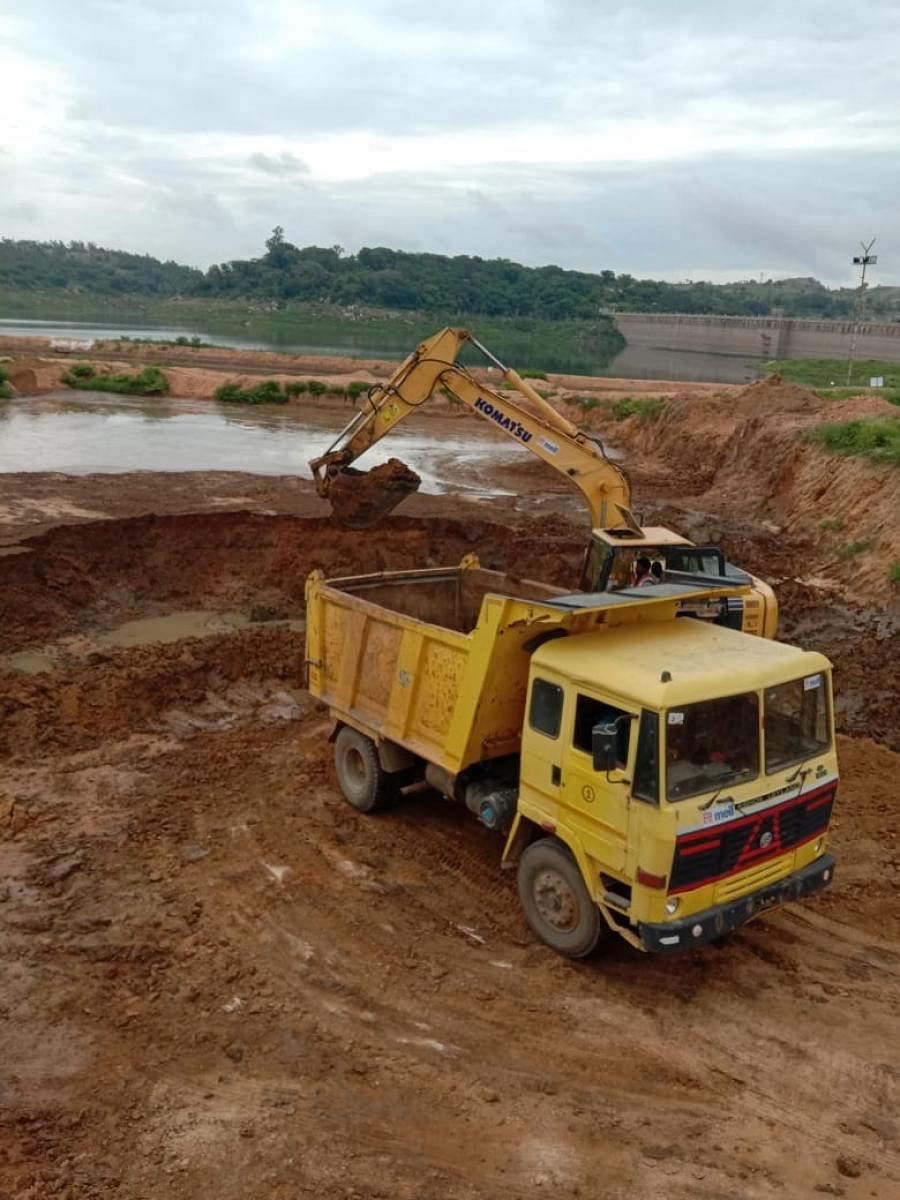

A scientific test of the silt in Thippagondanahalli (TG Halli) reservoir has revealed that it is too contaminated to be used for agricultural purposes.
The findings deal a blow to the much-hyped strategy to desilt lakes and reservoirs around Bengaluru and provide the silt to local farmers.
The report by the Soil Science and Agricultural Chemistry department of the University of Agricultural Sciences (UAS) says the silt will affect the "growth of plants", as arsenic and lead were detected in the samples.
Following this, the Bangalore Water Supply and Sewage Board (BWSSB) has decided to dump the silt into abandoned quarries, instead of supplying it to farm fields and forest areas around the reservoir.
The samples were taken from two metres below the reservoir bed and sent to the soil testing laboratory at UAS and a few other private laboratories. S V Ramesh, Chief Engineer, BWSSB, told DH that hard metals were detected in the samples, which were sent to the Gandhi Krishi Vigyana Kendra (GKVK) to ascertain whether it could be used as manure.
"As the samples had considerable amount of toxic contents, the experts said it cannot be used for agricultural purposes,” he said. The GKVK report, a copy of which is with the DH, stated, “All the three samples recorded high in iron and manganese, and copper was high in the second sample. The silt cannot be used in acidic soil as it would interfere with plant growth and toxicity.”
After obtaining permission from the Deputy Commissioner, the BWSSB is dumping the silt into an abandoned quarry at Cholanayakanahalli, about 10 km from the reservoir. Officials said the dumped silt is fenced to ensure that it does not percolate into the ground. Initially, it was planned to be spread across 400 acres of forest abutting the reservoir, besides supplying to the local fields.
A N Yellappa Reddy, an ecologist working with the desilting of Bellandur Lake, said, "It is not the case of TG Halli alone but all other waterbodies in and around Bengaluru. Scientifically there are three levels — threshold limit, threshold alert and threshold alarming. If you test the silt of any waterbody around the city, 90% of them have surpassed the first two levels and reached the alarming stage. We must wake up to the potential threat that will have serious implications on our lives.”
The BWSSB is transporting 30 truckloads of silt every day to be dumped in the quarry. So far 70,000 cubic metres of silt (73%) has been removed.